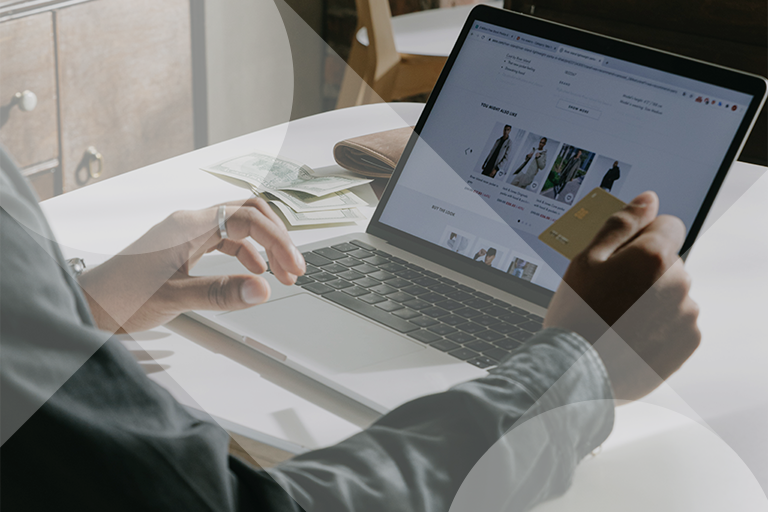Retail is constantly evolving. How customers prefer to shop, where they prefer to shop, various channels brands can use to connect—there are a lot of variables. What’s important, however, is that there continues to be growth. This year’s Europe Growth 3000 Report, from RetailX, features 3000 up-and-coming retailers and brands across 32 markets. Throughout the report these brands are examined to better understand the tools that are being implemented to help them succeed.
More broadly, however, the report focuses on four key drivers of growth in European retail today: traffic, mobile shopping, delivery, and easy payments. In this article we’re going to review these drivers to better understand how retail is evolving and, of course, how marketing strategies can be shifted to better align with the drivers. But first, we need to set the stage.
Setting the Retail Stage: Current Events
Global events can have a large impact on retail trends. When the pandemic reared its ugly head, retail brands were forced to undergo a major digital transformation to reach their customers at home. While the shockwaves from the pandemic may be diminishing, there are a variety of other current events having an impact on the European world of retail.
The Economy
Inflation is delivering a heavy blow this year. As the report states, “Prices are climbing and the cost of living [is] rising, following increases in energy prices and supply chain costs and delays. These at first were caused by the Covid-19 disruption but have since been exacerbated by Russia’s invasion of Ukraine.”
Inflation is causing shoppers to buy less than they did before the rise in cost of living, but, as a more notable result, a greater percentage of purchases are happening online now compared to pre-pandemic days. In April 2022 in the UK, 26.6% of retail transactions took place online. Before the pandemic, 19.7% of purchases were online.
As a result, 50% of 500 UK retailers surveyed by Brightpearl said they planned to increase their investment in retail software this year.
Sustainability
Another factor impacting retail growth is the consumer demand for sustainable shopping. According to IBM, 62% of shoppers were willing to change their purchases to help reduce the environmental impact of their purchases. Karl Haller, global leader at the consumer centre of competency at IBM Consulting, attributes this to shoppers wanting to more closely align their shopping behaviors with their values. Thus, the onus is on retailers to help customers understand how their products support sustainability.
As the report says, “Those who continue to listen to their customers and give them the experience they want will have the best chance of success in this increasingly challenging environment.” Meeting customer expectations will help drive brand growth.
Retail Growth Drivers
As mentioned earlier, in addition to meeting customer expectations, the RetailX Europe Growth 3000 Report touches on four drivers of growth: traffic, mobile shopping, delivery, and easy payments. Each of these drivers are proving to be determining factors in the success of retail brands. Let’s dive into why.
Website Traffic
It’s no surprise that getting more visitors to your website will increase the likelihood of purchases. But, to further that growth, brands need to consider the entire customer experience on their website. One aspect of this experience is product search.
A part of the product search for the customer is determining whether or not the product they found is right for them. To do so, often customers look to their friends and family for a second opinion. More brands—41% in 2022 compared to 36% in 2021—are offering ways for customers to share products via social media. This not only opens the door for customers to get a second opinion, but it also spreads product awareness for the retail brands.
The takeaway: Stand-out retailers make their websites easy to navigate and products easy to find.
Mobile Shopping
More consumers than ever before are shopping from their mobile devices. But, mobile is being added to existing customer journeys to create convenient multi-channel shopping experiences. This is true in the cases of product pickup and SMS marketing.
Because mobile is being added to journeys to improve convenience, one aspect the RetailX Europe Growth 3000 Report looked at is collection—picking up mobile orders in-store. The pickup time for the retailers surveyed, compared to last year, is 3.97 hours faster.
Another aspect of mobile shopping that’s impacting growth is SMS marketing. By including SMS in the marketing channel mix, brands open a two-way communication with customers through which they can collect zero-party customer data. According to Iterable’s General Manager, EMEA, Mike McGuire, “Since there is a two-way conversation between your brand and each customer, you have the ability to really understand the end user.”
The takeaway: Mobile shopping is all about reducing friction. Retailers that stand out in mobile ensure their customers can use smartphones to shop in a more convenient way.
Delivery
Delivery options are becoming a more important part of the overall retail experience. According to Ines van Gennip, head of Amazon Shipping EU, “Customers are choosing where to buy from, not just based on the price and availability of the product, but also increasingly, by the range of delivery options, values of the brand, and eco footprint.”
The challenge with delivery is striking a balance between what customers need and what businesses can provide. “[Since the pandemic] promises have been scaled back and Growth 3000 retailers are now less likely to offer next-day or same-day delivery, and more likely to ask shoppers to spend more to qualify for free delivery.”
The takeaway: Convenient delivery and the ability to return products with ease can help these brands acquire and keep customers.
Easy Payments
This driver of growth is all about the checkout process. What steps do customers need to take in order to buy a product?
For example, are new customers required to create an account before they can checkout? According to the report, in 2021 only 27% of brands required shoppers to create an account before completing their purchase. In 2022, however, 59% of surveyed brands require account creation. Likely, this is tied to brands’ desire to create customer relationships.
Another growth factor when it comes to payments is whether or not brands offer choices for payment. Between Amazon Pay, Paypal, Facebook pay, and more, customers have a variety of ways to pay, and some ways they may prefer.
The takeaway: Offering payment choice and understanding customer preferences is crucial for driving growth.
The Changing Landscape of Retail
Multiple factors contribute to the evolution of retail and how consumers prefer to shop. It’s not always easy to predict what changes will occur but there are ways to embrace the changes to help your retail brand grow. Mainly, it’s about understanding each customer’s preferences.
Whether they shop online or in-store, use mobile ordering, need same-day delivery, or prefer Paypal, your brand should be able to create an experience that aligns with each individual preference.
To learn more about emerging retail trends in Europe, download the full RetailX Europe Growth 3000 Report.






























